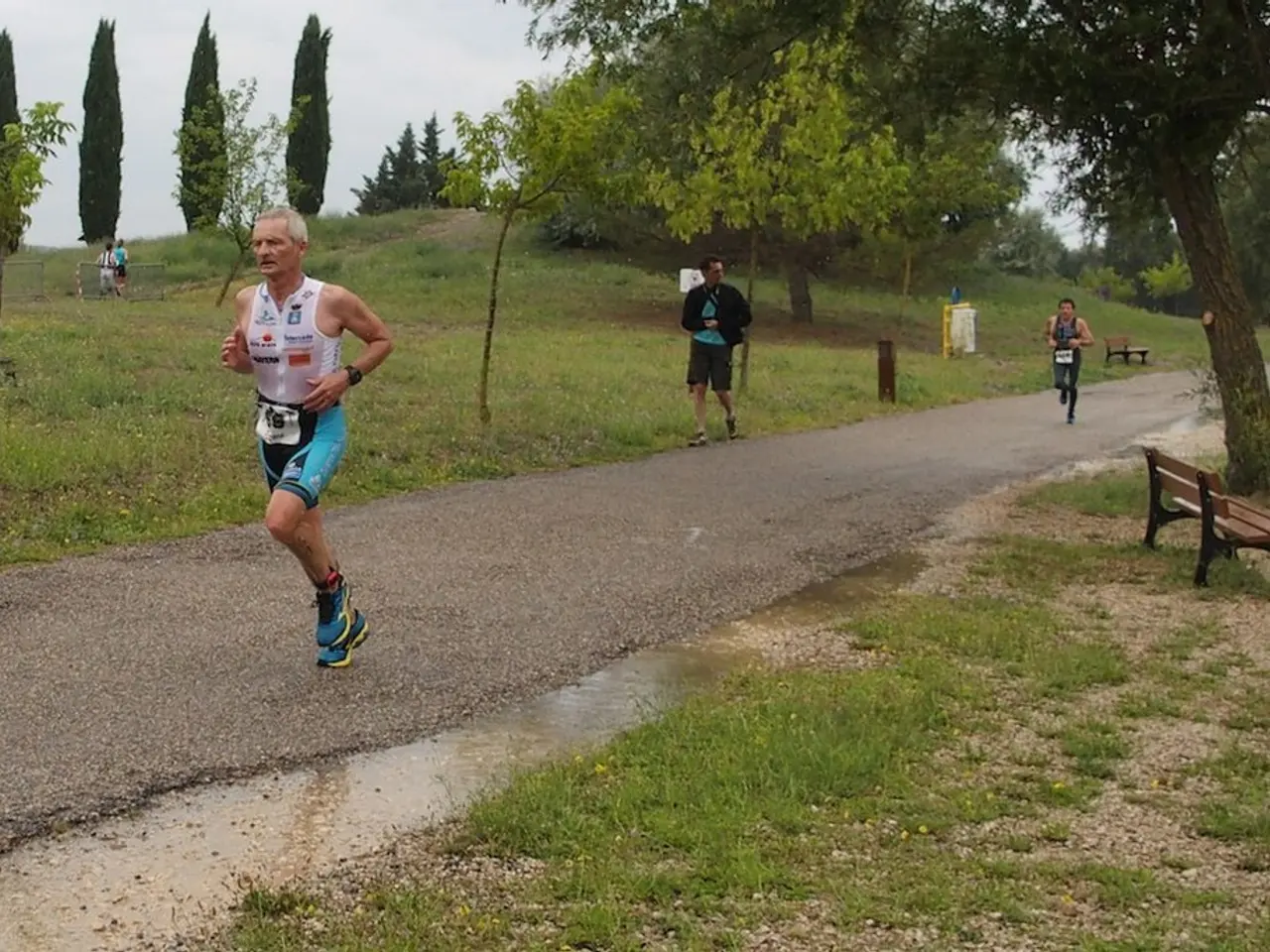Expert on longevity suggests integrating mental workouts with physical activities may hold the key to healthy aging; learn how to put this approach into practice personally.
A groundbreaking study published in the Journal of Psychology of Sport and Exercise has revealed that the combined practice of Brain Endurance Training (BET) and short bouts of exercise can offer greater cognitive and physical benefits for older adults compared to performing either activity in isolation.
The study, led by Professor Chris Ring, involved 24 healthy sedentary women aged 65-78. The participants were divided into three groups: BET, exercise only, and a control group. The BET group, which combined cognitive training and physical exercise, demonstrated significant improvements in both cognitive and physical performance.
In terms of cognitive performance, the BET group showed a 7.8% increase, outperforming the exercise-only group (4.5%) and the control group (0.3%). The group's physical performance improved by an impressive 29.9%, significantly surpassing the exercise-only group's 22.4% improvement.
The study is one of the first attempts to investigate how BET can address cognitive decline in older adults. Originally developed for elite athletes, BET combines cognitive training and physical exercise. To try BET yourself, spend 20 minutes on cognitive tasks, including both executive function (such as the Stroop test) and non-executive function (such as the psychomotor vigilance test) tasks.
Professor Ring recommends using a battery of cognitive tasks, performed before each workout, to ensure a comprehensive approach to cognitive training. He also suggests the Soma NPT app by Soma Technologies for trying BET, although membership costs $49 a month.
The potential benefits of BET extend beyond cognitive enhancement. Professor Ring believes BET could reduce the risk of falls and accidents among older adults when fatigued. This is because BET has been found to improve attention and executive function, as well as physical endurance and resistance exercise performance.
The study's neurobiological effects are significant. Aerobic and resistance exercises increase critical neurotrophic factors, including brain-derived neurotrophic factor (BDNF), which supports synaptic plasticity, neurogenesis in the hippocampus, and improved memory. These molecular changes help reduce age-related cognitive decline and neurodegeneration.
In summary, the combination of BET with brief exercise sessions synergistically boosts older adults’ cognitive function by enhancing brain plasticity, executive functioning, and neurochemical health, all achievable through practical, time-efficient regimens. This integrated approach optimally supports healthy cognitive aging.
- Incorporating cardio workouts into a fitness-and-exercise routine, as part of a broader health-and-wellness strategy, could potentially synergize with mental-health focused activities like Brain Endurance Training (BET) to promote both cognitive enhancement and physical performance in older adults.
- The aging process is associated with a decline in cognitive function, but recent science suggests that the practice of BET, which involves cognitive training and physical exercise, could help mitigate this decline, leading to improved mental health in seniors.
- The combined practice of BET and cardio workouts is not only beneficial for cognitive enhancement but also for physical fitness and reducing the risk of falls and accidents among older adults, primarily due to its effects on attention, executive function, physical endurance, and resistance exercise performance.




